- News
- Reviews
- Bikes
- Components
- Bar tape & grips
- Bottom brackets
- Brake & gear cables
- Brake & STI levers
- Brake pads & spares
- Brakes
- Cassettes & freewheels
- Chains
- Chainsets & chainrings
- Derailleurs - front
- Derailleurs - rear
- Forks
- Gear levers & shifters
- Groupsets
- Handlebars & extensions
- Headsets
- Hubs
- Inner tubes
- Pedals
- Quick releases & skewers
- Saddles
- Seatposts
- Stems
- Wheels
- Tyres
- Tubeless valves
- Accessories
- Accessories - misc
- Computer mounts
- Bags
- Bar ends
- Bike bags & cases
- Bottle cages
- Bottles
- Cameras
- Car racks
- Child seats
- Computers
- Glasses
- GPS units
- Helmets
- Lights - front
- Lights - rear
- Lights - sets
- Locks
- Mirrors
- Mudguards
- Racks
- Pumps & CO2 inflators
- Puncture kits
- Reflectives
- Smart watches
- Stands and racks
- Trailers
- Clothing
- Health, fitness and nutrition
- Tools and workshop
- Miscellaneous
- Buyers Guides
- Features
- Forum
- Recommends
- Podcast
review
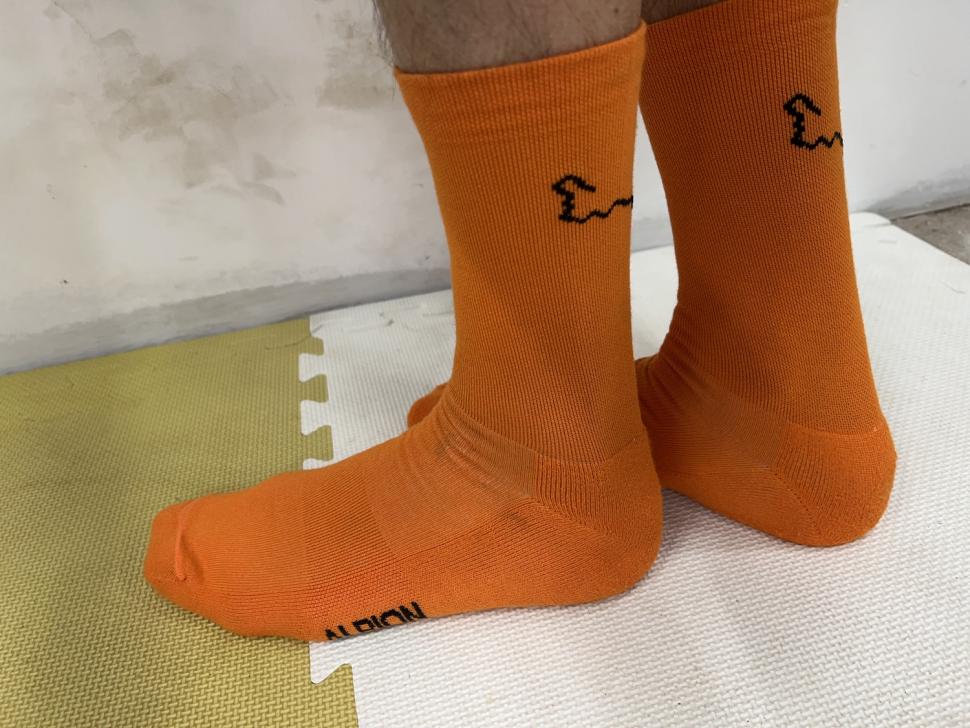 Albion Winter Socks
Albion Winter Socks£20.00
VERDICT:
Brilliant socks for keeping your feet warm and comfortable throughout winter, and in cooler months
Warm
Comfortable
Great fit
Soft
Subtle good looks
A few more colours would be nice
Weight:
61g
Contact:
At road.cc every product is thoroughly tested for as long as it takes to get a proper insight into how well it works. Our reviewers are experienced cyclists that we trust to be objective. While we strive to ensure that opinions expressed are backed up by facts, reviews are by their nature an informed opinion, not a definitive verdict. We don't intentionally try to break anything (except locks) but we do try to look for weak points in any design. The overall score is not just an average of the other scores: it reflects both a product's function and value – with value determined by how a product compares with items of similar spec, quality, and price.
What the road.cc scores meanGood scores are more common than bad, because fortunately good products are more common than bad.
- Exceptional
- Excellent
- Very Good
- Good
- Quite good
- Average
- Not so good
- Poor
- Bad
- Appalling
The Albion Winter Socks are great. They work across a wide range of temperatures, making them ideal from autumn to spring; the synthetic material is soft and stretchy, offering a sublime fit; the cushioned footbed cossets your soles; and the generous height is great for keeping ankles happy on longer legs.
If you're looking for a pair of socks to keep your feet toasty this winter – or, despite the name, much of the year – these Albions should be at the top of your list, especially if, like me, you don't like the feel of merino, as these are totally synthetic: 45% polyester, 35% nylon, 20% elastane.
In a size XXL (EU 44-47/UK 10-13), they fit perfectly on my relatively narrow size 11 feet. They're snug but not tight, the generous amount of elastane offering plenty of stretch. The socks are also available in S/M and L/XL, overall covering sizes from 3 up to 13, which is pretty wide.
The material feels soft, and in the majority doesn't feel bulky, with an almost summer weight to them. Conversely, the padded toe and footbed is very thick and luxurious, and feels like having pillows under your feet. Truly, these are the best winter socks I've ever tried for feel (and I've tested a lot).
There's plenty of height to the Albion socks too, measuring about 15cm from the point at which the cushioned footbed ends on the heel, or about 20cm from the centre point of the heel (Albion doesn't actually state a length). Suffice to say, they are plenty long – some of the longest I've ever tested. If you like more coverage on your ankles/calves, or you've got very long legs, these will suit you very well. They might be a touch too long for shorter legs, mind.
Tested across a range of temperatures, from hovering above the freezing mark, all the way up to the unusually mild weather in the mid teens we've been experiencing in the UK this winter, the socks performed admirably. At the low end, I only needed a pair of thick neoprene overshoes to keep my feet toasty. At the warmer end, my feet were warm but always stayed cool thanks to the excellent breathability of the material. They weren't stinking in the slightest after a long and very wet and muddy ride around the back lanes south of Bristol, either. Top result.
Though people rave about the qualities of merino socks for retaining warmth while allowing your feet to breathe, Albion's animal-free material performs just as well, if not better. And there's very little bulk, too.
Aesthetically, Albion has gone subtle but stylish, with a dual Albion logo on the footbed, and the signature logo line on the upper section. Colours are pretty limited, with black, olive/orange and this bright orange option; a couple of extra colours would be appreciated.
Value
Given the excellent performance these socks offer, the £20 price tag isn't bad, especially when you consider their ability to work across a wide range of temperatures. They would also work well for all kinds of riding, including road, gravel and mountain biking, despite not being advertised as such.
> Suffering cold feet? Find out how to keep your feet warm cycling through the winter
The MAAP Alt_Road Merino Socks perform similarly to the Albion Winter Socks yet cost £5 more (and contain merino wool, which some won't like). Similarly, the Monton Pro Suutu Merino Socks are a decent option at the same price, but they're a bit bulkier.
Conclusion
Overall, the Albions are a great option if you dislike the feel that merino socks offer and you prefer to steer clear of products that use anything animal in them. Even without merino, their performance is brilliant – warm, comfortable, and a great fit.
Verdict
Brilliant socks for keeping your feet warm and comfortable throughout winter, and in cooler months
road.cc test report
Make and model: Albion Winter Socks
Size tested: XXL
Tell us what the product is for
Albion says, "Winter cycling sock constructed using a technical nylon yarn for effective warmth and moisture wicking on your longest winter rides."
Tell us some more about the technical aspects of the product?
Albion lists:
Padded toe and footbed for additional warmth
Albion logo line
Fabric: 45% polyester, 35% nylon, 20% elastane
Made in Italy
Rate the product for quality of construction:
8/10
Material feels thick and well put together.
Rate the product for performance:
8/10
Warm, comfortable and good coverage.
Rate the product for durability:
7/10
So far, so good – only washed a couple of times. One of those was after a very muddy winter ride, where the socks were caked in mud, and they came up looking like new. Slight bobbling on the footbed, but I've seen similar on other socks I've tested, which I believe is simply down to my feet moving around inside the shoes.
Rate the product for fit:
10/10
Perfect fit. Snug on both the foot and calf, but not too tight. Plenty of height for longer legs, or for just more coverage.
Rate the product for sizing:
10/10
Perfect for a size 11, in XXL.
Rate the product for weight:
8/10
Pretty light for warm winter socks.
Rate the product for comfort:
9/10
Thick and luxurious footbed is almost spongey, making it feel very comfortable underfoot.
Rate the product for value:
5/10
How easy is the product to care for? How did it respond to being washed?
After a couple of washes at 30 degrees, the socks still look great. The orange colour hasn't lost any of its zing.
Tell us how the product performed overall when used for its designed purpose
Great fit, very comfortable under the foot and a good length to keep ankles cosy. Surprisingly warm considering they're not the thickest option, and they work well whether the temperatures are near freezing or in the mid teens. Breathability is also very good, and they don't smell after long rides, either.
Tell us what you particularly liked about the product
The cushioning on the sole.
Tell us what you particularly disliked about the product
Nothing.
How does the price compare to that of similar products in the market, including ones recently tested on road.cc?
They're cheaper than the recently reviewed MAAP Alt_Road Merino Sock, being £5 less, and on a par with the Monton Pro Suutu Merino Socks.
Did you enjoy using the product? Yes
Would you consider buying the product? Yes
Would you recommend the product to a friend? Yes
Use this box to explain your overall score
If you dislike the feel that merino socks offer, or you prefer to steer clear of products that use anything animal in them, these are a great option. Even without merino, their performance is brilliant – warm, comfortable, and a great fit. Aesthetically, they're pretty subtle, though the orange definitely gets you noticed.
About the tester
Age: 39
I usually ride: Condor Italia RC custom build My best bike is:
I've been riding for: 10-20 years I ride: A few times a week I would class myself as: Experienced
I regularly do the following types of riding: commuting, touring, club rides, sportives, mtb,
Latest Comments
- Rendel Harris 4 sec ago
Genuinely puzzled as to how you've extrapolated that from what I said. Care to explain?
- Rendel Harris 5 min 23 sec ago
If we can't have a debate over whether TNT shouldn't be allowed to take over cycling coverage and charge five times more for it, can we have a...
- chrisonabike 1 hour 43 min ago
The issue is we just end up with wider vehicles parked on the road because they won't fit the garage *, and it being more likely that drivers will...
- Pub bike 2 hours 10 min ago
He is up against the global trading system, which has obviously been in the news a lot lately. Framebuilders in other countries can undercut him,...
- David9694 3 hours 43 min ago
Stouport residents bemoan huge traffic queues through town...
- rookybiker 14 hours 37 min ago
The trailer seems to connect to both ends of the rear axle. Can it do tight corners without dragging the tyre sideways?
- froze 14 hours 40 min ago
Motorists have always been unkind to cyclists, but distracted driving is adding to the problem....
- Destroyer666 15 hours 34 min ago
Have you owned Bont shoes? In my experience even the widest Lake shoes have had a bizarre form of narrowing way too much in the toe area. But the...
- froze 16 hours 1 min ago
Not sure if this is possible, but this news letter goes out all over the world, and some places like Decathlon does not send stuff to America, in...
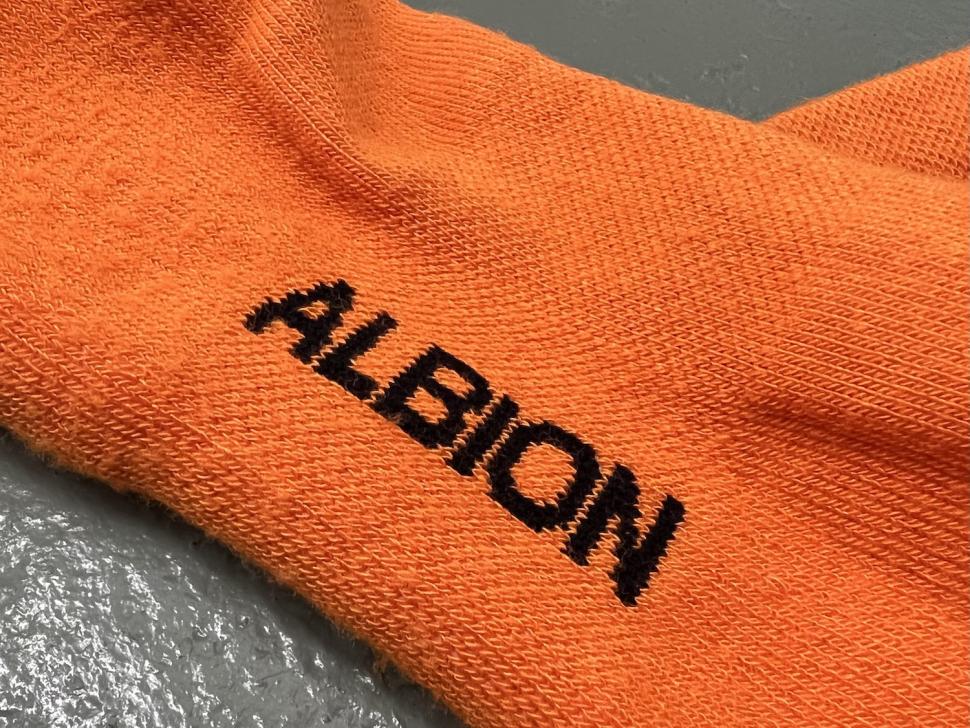







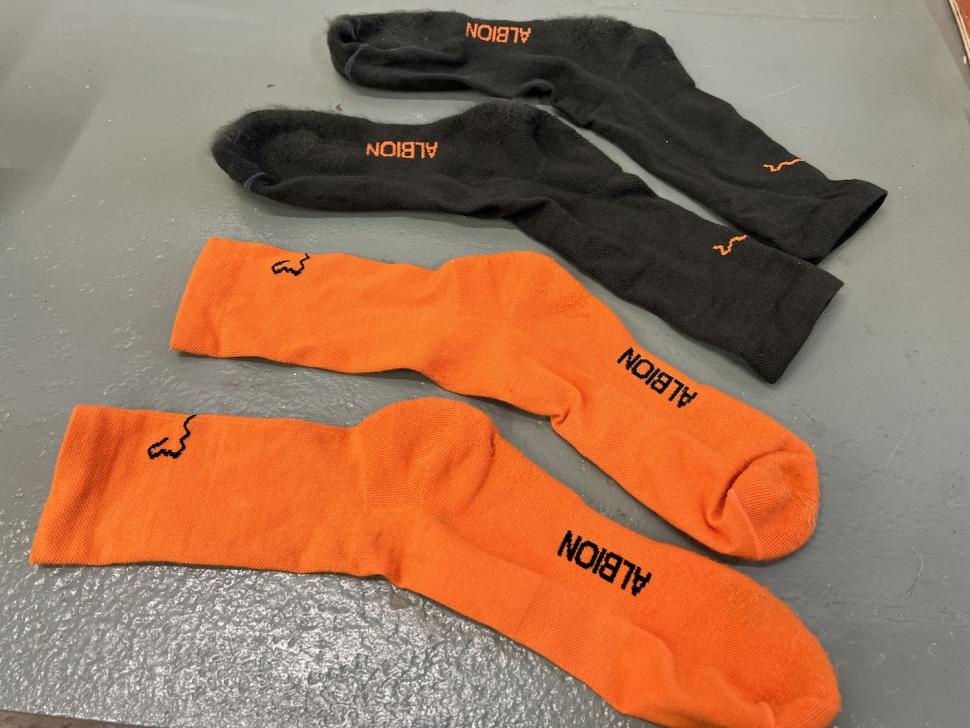
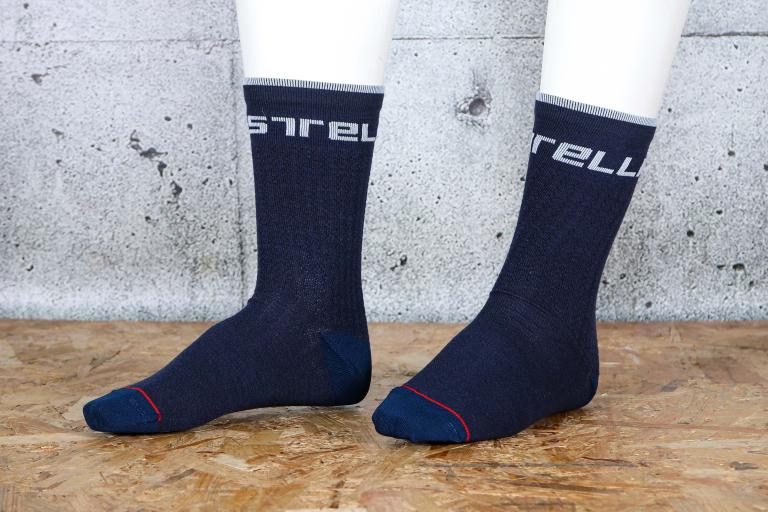
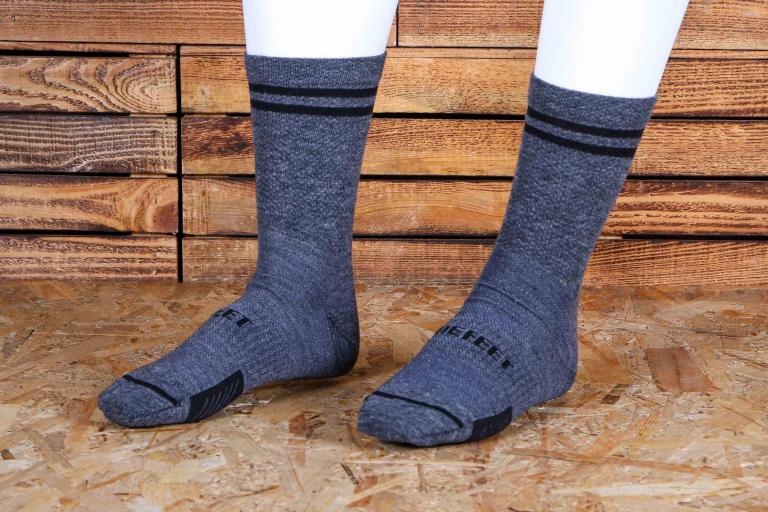
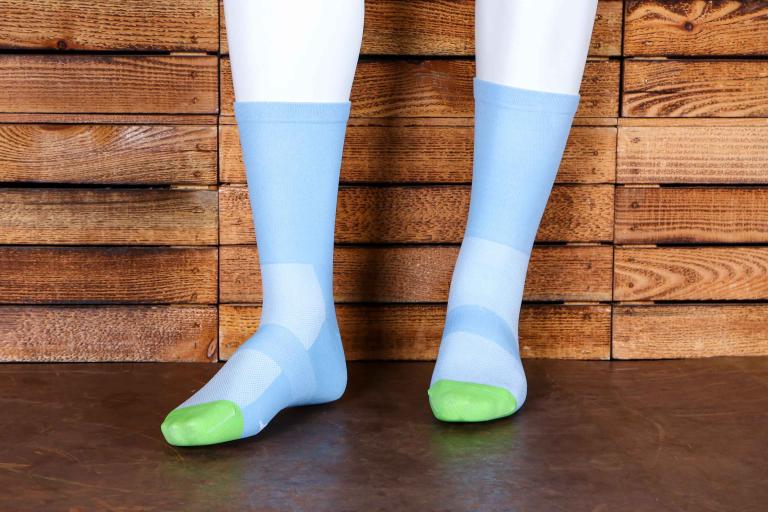
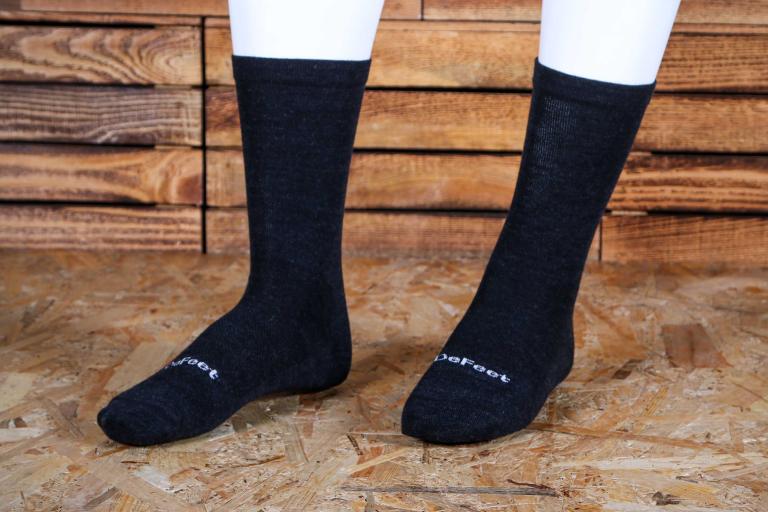
Add new comment
76 comments
Nudity is the only way forward until I am composted (with full methane recovery and recycling of my fillings) after death.
More seriously, how are we the punters to choose anything when everything is bad for the environment? Some sort of scoring system like fridge power consumption labels that manufacturers will then try to game?
You might want to read up on viscose rayon, which is the fabric green-washed as bamboo.
Here's Patagonia on why they don't use it:
https://eu.patagonia.com/gb/en/stories/why-dont-you-use/story-19681.html
Very interesting
I presume (from that statement) that that is of no concern to you at all
It really isn't on the first 2 points. The 3rd and 4th possibly.
duplicate - Road.cc, please can the delete function be made permanent
Oops! I just wanted to make sure that merino wool did not get a free pass on environmental impact just because it isn't "big oil". Of course it is "big farma" instead, and that has an impact.
Lots of things have been mentioned above. Not forgetting that grazing sheep means that nothing much grows except grass, which reduces the biodiversity supported. So the ecosystem is hugely impoverished. The CO2 that would be absorbed by scrubland and ultimately forestation is denied. Plus, sheepdip, that's not nice stuff either, organophosphates blah blah.
That's quite a toll, and I just wondered how it weighed against the toll exacted by artificial fibres. Maybe someone has done the maths?
PS: single use threads? I wash mine and use them again.
I'm just worried what's going to happen when they look at the website stats and decide that sock reviews generate the greatest ad revenue!
Dedicated sock review micro-site maybe?!
Would road.cc then become a sock puppet?
I think you asked a very good question - not least because we don't really know the answer. Like issues around plastic bags, it's not always as obvious as it fist appears.
The point around biodiversity is a good one. Many of our favourite 'natural' landscapes (e.g. the Lakes District) have been hugely bio-impoverished by sheep farming, not to mention the terrible flooding the bare slopes have contributed to.
In addition to the initial environmental cost per item, I also wonder about the effect of durability. How many wears would you get from a pair of wool or merino socks versus a synthetic pair? Even if the latter had (say) twice the initial cost per pair, if they lasted three times as long... As with the other factors, I don't know the answer but it seems a valid question.
Personally I think in terms of carbon addition.
Any fossil fuel use adds to the sum of carbon in circulation. This inevitably leads to an increase in atmospheric CO2 with all the problems that entails. The extra CO2 persists for centuries.
Sustainable farming does not lead to a net increase in carbon.
Methane is an issue but it only persists in the atmosphere for 10-15 years before being broken down and will be partially offset by the CO2 absorbed by the soil and the animal feed.
We also have to consider that were an area not farmed at all then it would be likely inhabited by wild animals who would be cheerfully producing their own methane which further reduces the net methane production.
But at present it is being constantly replenished and with livestock at historically high levels it will go on being so at a greater rate than it is broken down, we're pouring a quart into a pint pot in that respect at present which is why global atmospheric methane levels have gone up from around 1640ppb in 1984 to almost 1940ppb today and are still rising.
The huge amount of methane emitted during oil drilling and coal mining may have something to do with that as well.
Cattle population appears to be fairly static for the last decade.
Tricky to do sustainable farming when even the depth of ploughing has an impact. Also, given that farming is so much about subsidy, it seems difficult to build a farm economy that does what we need without damage.
Isn't that only significant for ruminants?
I already know I'm not cool or hip, but the Albion 'signature logo' looking like a stray pulled thread would drive me bonkers!
Wish I'd seen this before placing an order for some other Albion stuff in the week!
I hate to break it to you but there are a few more Albion reviews coming this week and next week!
Pages